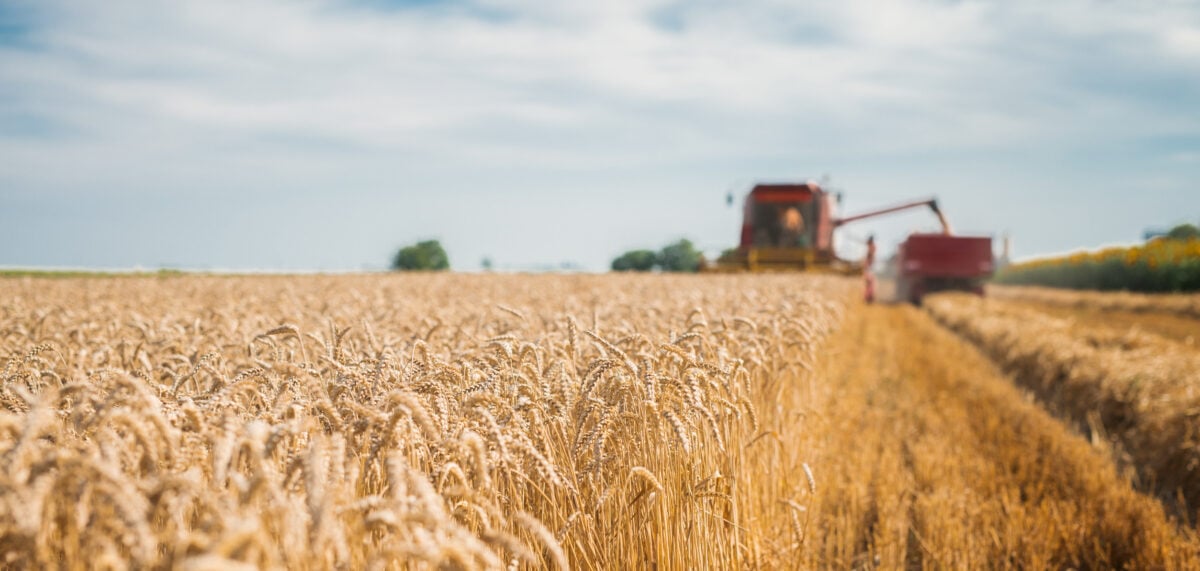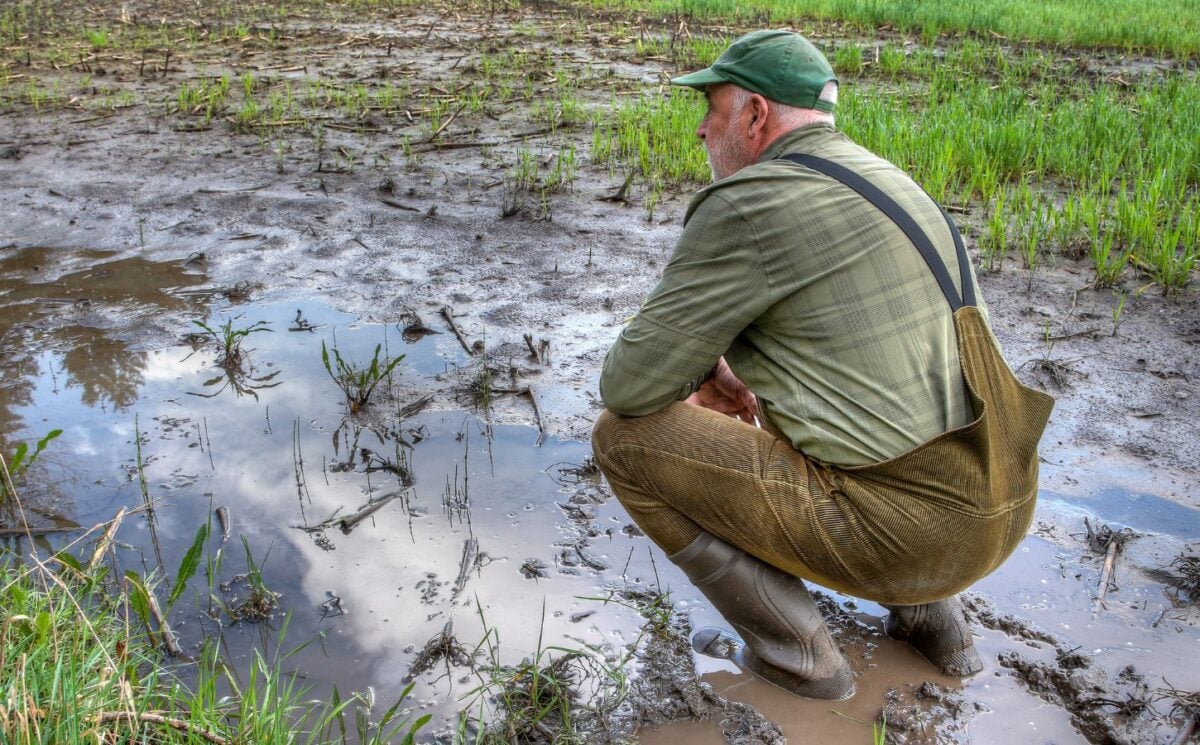Extreme wet weather in England last winter has resulted in the second worst harvest since 1983, according to new data released by the Department for Environment, Food and Rural Affairs (Defra). Experts have blamed the climate crisis, and warn that we could be in the same situation in 2025.
Read more: London At ‘Clear Risk’ Of Wildfires Caused By The Climate Crisis
The climate crisis made the record-breaking rainfall that hit England between October 2023 and March 2024 four times more likely and 20 percent heavier. Crop fields became waterlogged, reducing yields and making it difficult for many farmers to plant new crops. This year, farmers harvested 21 percent less wheat, 26 percent less barley, and 32 percent less rapeseed than in 2023.
“It is clear that climate change is the biggest threat to UK food security,” Tom Lancaster, analyst at the Energy and Climate Intelligence Unit (ECIU), said in a statement. “And these impacts are only going to get worse until we reduce our greenhouse gas emissions to net zero, in order to stop the warming that is driving these extremes.”
On a “knife-edge”

Autumn of 2024 has proved to be another potential disaster for farming. September was the wettest on record for some English counties, particularly in the south east.
“We are now on a knife edge,” Linconlshire arable farmer Colin Chappell, told ECIU. “We’re getting into a situation where autumn planting is becoming unviable due to flooding and spring planting is risky because of drought. It is causing a lot of nervousness and uncertainty.”
Read more: Avocado Production Set For Heavy Decline Due To Climate Crisis, Report Finds
Aside from grains being hard hit, last winter’s rainfall threw out planting schedules for cabbages, broccoli, and cauliflowers. As a result, the vegetables failed to mature in time to meet demand, leaving farmers with an oversupply in the summer.
According to a survey of British farmers, 60 percent believe food shortages could cause civil unrest over the next decade. The farmers identified extreme weather events as the likeliest cause of these shortages.
Read more: Hundreds Of Climate Scientists Predict Global Heating Of At Least 2.5C






